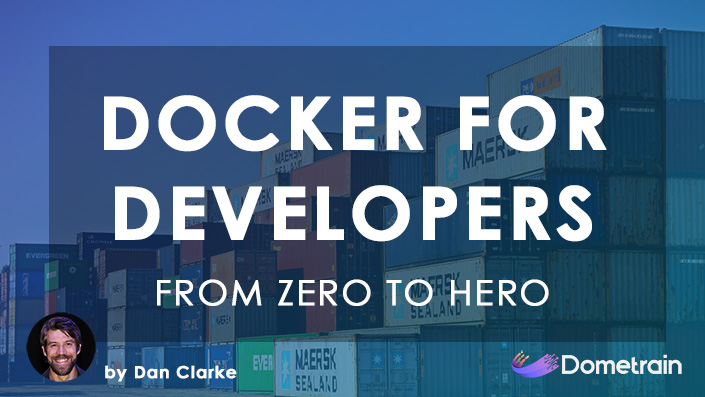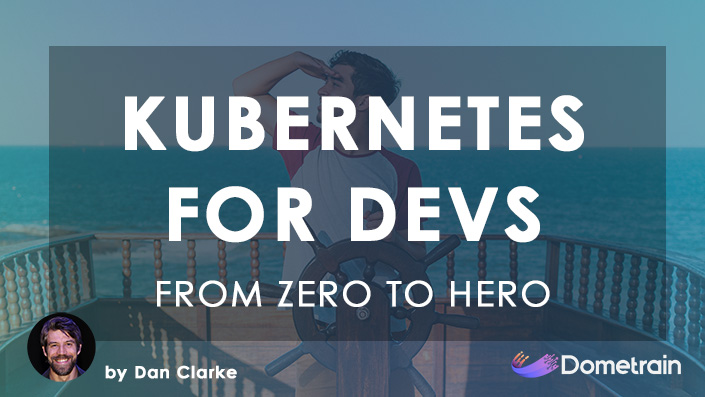Hi, and welcome to the March edition of the newsletter!
From my side - progress on the .NET Aspire course is going well. I didn’t manage to keep up the 5am starts I mentioned last month (especially now that the clocks have gone forward!) - but I’m still somehow finding time here and there to work on it, so still on track!
I’ve also published another podcast episode (details are below).
Pre-warning - the news items in this edition are a bit “AI-heavy” this month! 🙈
(none of this post is written by AI though!)
The main social platform I use is Bluesky. My handle is @danclarke.com. Feel free to either message me there or reply to this email to say hello! 🙂
📰 News items and dev picks
Here are my dev picks this month…
A 10x Faster TypeScript - In this post and video, Anders Hejlsberg describes how they’ve begun work on a native port of the TypeScript compiler and tools using Go. There’s also a thread on GitHub about why they chose Go, which Anders replied to here.
GitHub Extensions gets dark mode again! - If you’re a Windows user; a fan of dark mode; and use Git Extensions - you may have intentionally stayed on a much older version because they dropped dark mode. Well, they’ve now added it back! At the time of writing, it’s in the nightly/preview build, not the GA release. Easy to install that version though (details on their readme). I’ve recently switched back to using Git Extensions after experiencing buggy behaviour in the GUI I was using (no names mentioned!) - and am really enjoying using it. I’d forgotten how powerful it is!
Introducing support for SLNX, a new, simpler solution file format in the .NET CLI - That post talks about it in the CLI, and this one covers Visual Studio. Years ago, csproj files were horrible, and the new format made them so much better and cleaner. Now, solution files are getting the same treatment, which is great news!
NDC London videos are now available! - I attended NDC this year for my very first time. Obviously, I couldn’t see all the talks though - so great being able to catch up on those I missed.
Google releases Gemini 2.5 model - I haven’t tried it yet, but I’m hearing pretty good things about it, especially for coding.
Claude 3.7 Sonnet and Claude Code - Anthropic release Claude 3.7 Sonnet model. Another good one for coding. They also announced Claude Code - which is a command line tool for agentic coding. Definitely check out the short video in that article about Claude Code - looks impressive!
Claude 3.7 Sonnet is now available in GitHub Copilot in public preview - Speaking of Claude 3.7 - it’s now available in GitHub Copilot.
Anthropic can now track the bizarre inner workings of a large language model - Interesting article from the makers of Claude, trying to understand more deeply what LLMs do to come up with their responses.
MCP (Model Context Protocol) - At the end of last year, Anthropic published a post: Introducing the Model Context Protocol. Recently, this has been gaining a lot of traction…
Sam Altman (OpenAI) has announced that it’s coming to their products soon.
Playwright-MCP - I’m a big fan of Playwright - and had to include a mention of this project when I saw it! An MCP server that enables LLMs to interact with web pages!
MergeConflict podcast episode - 456: Hello Model Context Protocol (MCP) Servers
Vibe coding! - Okay, given this seems to be the latest buzzword that is suddenly going viral - I guess I should mention it? 🤷♂ Basically, it means using LLMs to build applications, but rather than reviewing and fully understanding every line of code - you instead iterate with the LLM, and get that to make changes or fixes via prompts. Here’s a video on Twitter showing it in action.
dotnet-perge tool - A new project by Damien Edwards… “runs dotnet clean for each target framework and configuration and then deletes the output directories. Can be run in a directory containing a solution or project file.”. Sounds useful!
Dev Comic pick of the month

(source)
Dev Tip - Anki for remembering stuff!
This month’s dev tip is a tool/technique I learnt from Simon Painter back in episode 9 of the podcast! He picked this as his dev tip at the end of the show. I had a play with it afterwards, but didn’t start using it properly at the time. However, I’ve recently started using it more, and it’s AMAZING for learning and making sure things stick in your memory and progress to long-term memory. It’s basically a flashcard platform that embraces spaced repetition. You can create your own decks, or download existing ones. The web, desktop, and mobile apps all sync. If you want to hear Simon’s description of it, check out the above link - about 1 hour 7 minutes and 36 seconds in.
Sponsorship opportunities
I’m looking for sponsors for both the podcast and this newsletter. Details of podcast sponsorship can be found here. Feel free to reply to this email to discuss further.
The Podcast 🎙
I just published the next podcast episode yesterday. I was joined by Tomek Masternak and Szymon Pobiega for a technical deep dive into the Outbox Pattern…
Also, remember that we have a Discord community for the podcast!…
My Dometrain Courses
Below are details of my Dometrain courses. There’s also a bundle that includes both the Docker and Kubernetes courses, which can be found here.
Docker for Developers
This course will teach you everything you need to know about Docker and containers. From what containers and images are; to how to build your own; to security and networking; docker-compose; and much more!
Kubernetes for Developers
Once you understand Docker, containers, images, etc - it’s time to move onto the next level and learn a container orchestrator - and Kubernetes has clearly won the battle here! My Kubernetes course is rammed-packed full of demos (pretty much all the way through), which are easy to follow along with downloadable YAML files and scripts. We start with the basics, then later move on to more advanced topics like services meshes and operators.
JetBrains Rider
Rider is an amazing .NET IDE by JetBrains. This course is 6 hours of content - covering hotkeys, refactoring, navigation, debugging, git, testing, AI, profiling, remote collaboration, and much much more!
If you’ve made it this far into the newsletter - I’m hoping that means you’ve
both enjoyed it and found it useful. If you can help me out and share with your developer friends at work and on social media, that would be amazing!
Again - feel totally free to reach out to me, and let me know your thoughts on the newsletter. And see you back in your inbox next month for the next edition! 👋
Bluesky (my primary place)
Twitter (using less nowadays)
LinkedIn
Discord
Mastodon (rarely used)
Threads (rarely used)





